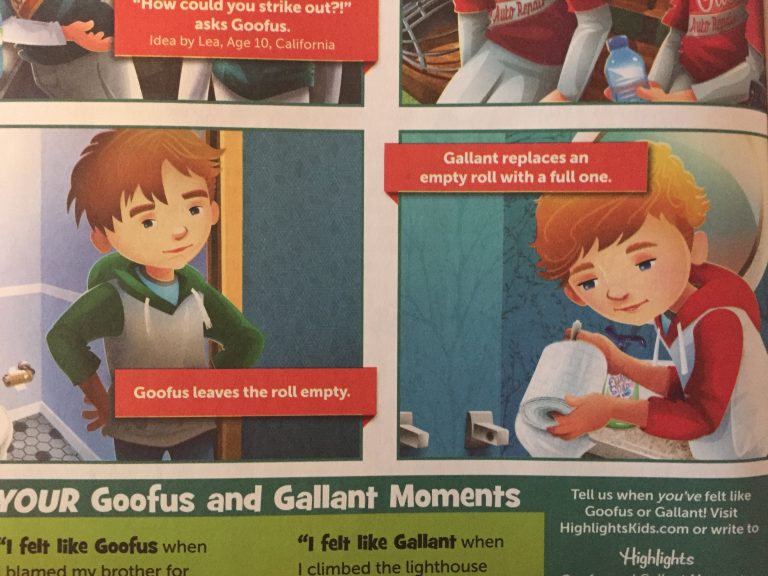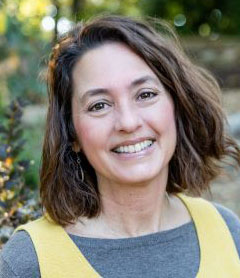Did you read Highlights magazine as a kid?
One of our neighbors — a retired military colonel who I only remember as “The Colonel” — gifted our family a subscription when I was just learning to read in San Antonio, Texas.
The subscription continued when we moved to Roanoke — and one of the features I remember most vividly was “Goofus and Gallant,” which is still published in Highlights. This is a didactic comic that contrasts two young boys: Goofus, who is always rude and selfish, and Gallant, who models virtuous and respectful behavior. As you can imagine, it is often parodied.

I was reminded of “Goofus and Gallant” while learning about another fictional composite character: ALICE, an acronym for Asset Limited, Income Constrained, Employed.
ALICE households — which made up about 29% of Virginia families in 2018 — are employed and earn above the federal poverty level, but they do not earn enough to afford basic household necessities. An additional 10% of households lived in poverty, which adds up to 39% of the state struggling to support their families. And keep in mind this is 2018 data … before the COVID disaster.
Those numbers were shared during a series of VCCS webinars about better serving under-resourced ALICE students, which is where I also learned about this helpful website: https://unitedforalice.org/virginia.
You can explore the local 2018 data on a map of Virginia — an alarming 57% households in the city of Roanoke were below the ALICE threshold, followed by Salem at 49%.
Relationships are the driving force for ALICE
In the ALICE webinar on March 24 entitled, “Relationships and Motivation: Building Bridges for Student Success,” we learned relationships — not achievement — is the driving force for ALICE students.
(I would argue relationships are everything, but that’s because I’m obsessed with this book.)
For many of these students, a college campus is like a foreign land. Or … since I’m very literary … it’s like ALICE in wonderland. Virginia Western can be a very peculiar world with our own language and hidden rules … but with so many opportunities for wonder, right? 🙂
I never heard the term “adult learners” once during the webinar, but that’s who ALICE students are, and who we aim to better serve with our ambitious Title III project, Get REAL.
Laura Clark, webinar host and executive director of the VCCS Student Success Center, emphasized we must approach our ALICE students as members of the community and not as a problem to be “fixed.”
I immediately flashed back to my own Montessori teacher training, which aspires to *serve,* not help or fix. Montessorians listen first. They also guide, not control.
Clark, who served as a College Success Coach at Paul D. Camp Community College for six years, also encourages us to remove the word “should” from our vocabulary … which is funny, because she also shared a table of “constructive” and “destructive” behaviors to keep in mind as we coach and instruct students.
These feel very much like “Goofus and Gallant” shoulds and shouldn’ts, but I digress … it’s a very helpful guide as we continue to build relationships of mutual respect, both with our colleagues and our students.
I should also point out the current Highlights comic notes “there’s some Goofus and Gallant in us all. When the Gallant shines through, we show our best self.“
| GALLANT Constructive attitudes & behaviors | GOOFUS Destructive attitudes & behaviors |
| Seeking first to understand | Assuming you know what the student thinks and feels |
| Appreciating student’s humor | Put-downs or sarcasm about the student’s humor |
| Accepting what the student cannot say about a person or situation (loyalty to the absent) | Demanding full explanation |
| Respecting the demands and priorities of relationships | Insisting that achievement supersedes relationships |
| Using the adult voice | Using the negative parent voice |
| Assisting with goal setting | Telling the student their goals |
| Identifying options related to available resources | Making judgments on value and availability of resources |
| Understanding the importance of personal freedom, speech, and personality | Assigning pejorative character traits to the student |
To learn more about ALICE households, check out https://unitedforalice.org/virginia, or this highly recommended book, available in Brown Library: Understanding and Engaging Under-Resourced College Students. This feels like it would be an excellent “community of practice” read.
ALSO: Highlights magazine is still mailing issues every month! And in a fitting tribute to “The Colonel,” I gifted subscriptions to all the nieces and nephews a couple of Christmases ago.
On our grant radar
*Free* professional learning opportunities
- The #RealCollege Virtual Journey, sponsored by the Hope Center for College, Community, and Justice. A series of online workshops and engaging activities led by experts and delivered free of charge. Upcoming topics include a conversation with “Pregnant Girl” author Nicole Lynn Lewis on May 12, and “Campus-Based Supports for Students with Familial Responsibilities” on May 19. Register here.
- The Future Trends Forum: Discussions about the future of education and technology with writer/futurist Bryan Alexander. April 15: Dr. Belle S. Wheelan, president of the Southern Association of Colleges and Schools Commission on Colleges (SACSCOC). More upcoming programs.
- Bookmark the VCCS professional development website
Funding opportunities
- NSF: Advancing Innovation and Impact in Undergraduate STEM Education at Two-year Institutions of Higher Education. NSF encourages bold, potentially transformative projects that address immediate challenges facing STEM education at two-year colleges and/or anticipate new structures and functions of the STEM learning and teaching enterprise. It also seeks to support systemic approaches to advance inclusive and equitable STEM education practices. (due May 10)
- NEH: Humanities Initiatives at Community Colleges. An opportunity to create curriculum, community partnerships, and faculty development with up to $150,000. (due May 20)
Grant starter kit
- Watch the video: 12 places to find grants
- Search Foundation Directory Online (for free through the library)
- Email sseagle@virginiawestern.edu with questions and ideas!
— Stephanie Ogilvie Seagle, April 2021






 Shelley Lyons is glad to be back on campus as she is a Virginia Western alum, and has served as the Administrative Officer for Grants Administration at Virginia Western since early 2022. Prior to VWCC, her career focus was within the Human Services and Arts fields. She wrote her first grant in 1996 on a whim and has continued to plan and learn since that time. She most enjoys seeing a well-planned project come to fruition, where funder, project manager and beneficiaries can all feel success and see impact.
Shelley Lyons is glad to be back on campus as she is a Virginia Western alum, and has served as the Administrative Officer for Grants Administration at Virginia Western since early 2022. Prior to VWCC, her career focus was within the Human Services and Arts fields. She wrote her first grant in 1996 on a whim and has continued to plan and learn since that time. She most enjoys seeing a well-planned project come to fruition, where funder, project manager and beneficiaries can all feel success and see impact.